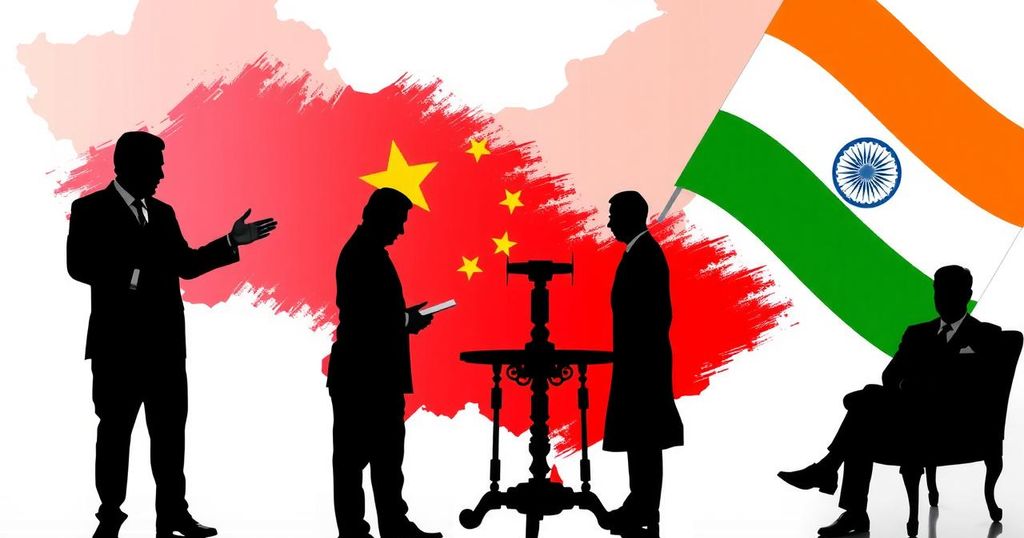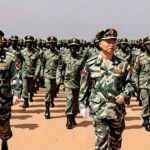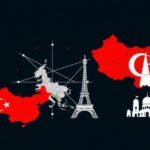Dr. Jaishankar on the State of India-China Relations Following the 2020 Border Clash
During a recent event in New York, External Affairs Minister Dr. S. Jaishankar discussed the impact of the 2020 Galwan clash on India-China relations, emphasizing the need for peace along their disputed border. He noted significant progress in disengagement efforts, while recognizing persisting challenges related to troop patrolling. He reiterated that the future of Asia and, by extension, the world is significantly tied to the dynamics between India and China.
The relations between India and China have been significantly impacted by the 2020 clash at the Galwan Valley, according to External Affairs Minister Dr. S. Jaishankar. Speaking at the event titled ‘India, Asia and the World’ in New York, he emphasized the criticality of India-China relations for the future of Asia and the world. He articulated that for a world to achieve a multipolar structure, Asia must also embody multipolarity; thus, the dynamics between India and China will play a central role in shaping regional and global geopolitics. Dr. Jaishankar acknowledged the challenges posed by the historical complexities between the two nations, given their status as neighboring countries with populations exceeding a billion and common borders that frequently lead to tension. He indicated that approximately 75% of the disengagement issues since 2020 have been resolved, but reiterated that the primary concern now lies in the management of patrolling along the Line of Actual Control (LAC). In his remarks, he clarified that while disengagement has progressed, the concentration of military presence at the border complicates further resolution. He noted, “Once troops were deployed very close up, which is ‘very dangerous’, it was likely a mishap could happen, and it did happen.” The Minister highlighted that the entire 3,500-kilometer border between India and China remains disputed, necessitating efforts to ensure its peaceful status in order to foster broader relations. He mentioned prior agreements between the two nations aimed at maintaining border peace, which were violated during the escalation of forces in 2020 amidst the COVID-19 pandemic. Dr. Jaishankar closed his discourse by reiterating that the focus for the last four years has been on disengaging troops so that they may return to their respective bases, thereby reducing tensions and laying the groundwork for improved bilateral relations.
The ongoing relationship between India and China has been complicated by territorial disputes and military clashes, particularly the notable conflict at the Galwan Valley in 2020, which led to fatalities on both sides. This event has cast a long shadow over diplomatic ties, prompting both countries to focus on disengagement strategies to de-escalate military presence along their mutually contested border. Understanding the historical context of the India-China relationship, characterized by significant population sizes and overlapping territorial claims, is vital for grasping the complexities surrounding their geopolitical interactions today. The Indian government, under Dr. Jaishankar’s leadership in the realm of foreign affairs, has prioritized achieving disengagement of troops and restoring peace on the border, as well as adhering to previously established agreements aimed at conflict resolution. The broader implications of this relationship impact not only regional stability in Asia but also the multipolarity of global politics. As both nations continue to rise in prominence, their interactions will indelibly shape the diplomatic landscape of the 21st century.
In conclusion, the dialogue between Dr. S. Jaishankar and the audience at the event in New York underscores the intricate and often contentious relationship between India and China. It reveals ongoing efforts to resolve disengagement issues on the border while navigating the complex geopolitical realities of a rising multipolar world. Ultimately, sustaining peaceful interactions at the border is essential for broader engagement and progress in India-China relations, which, in turn, influence regional and global dynamics.
Original Source: www.ndtv.com








Post Comment